How the Golden Triangle has transformed into a sustainability hub
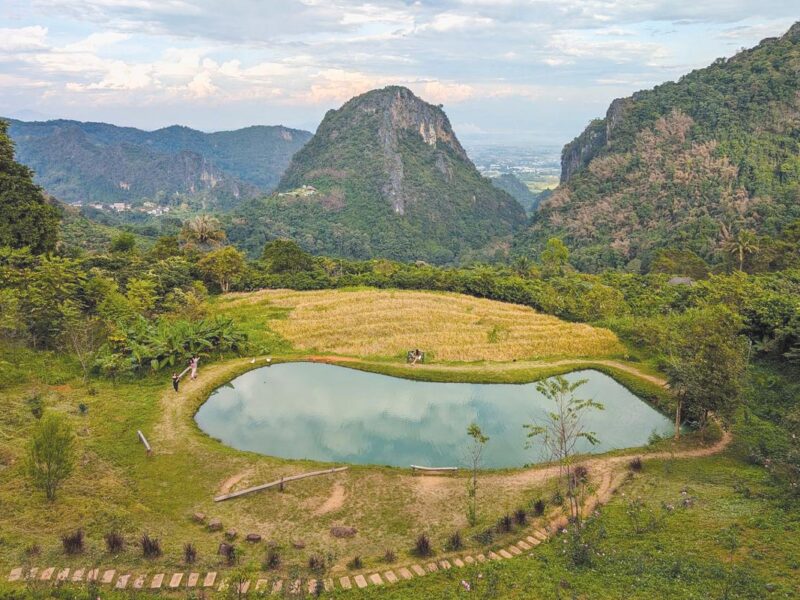
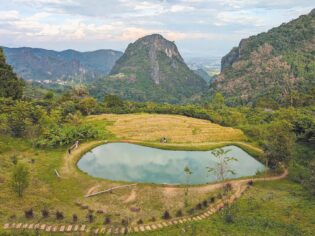
The once infamous Golden Triangle – the confluence of Thailand, Myanmar and Laos – is moving towards a sustainable future. And here’s how you can visit this intoxicating southeast Asian corner with a conscience.
Traffic moves slowly in the Thai jungle. I’m in a jeep trailing 62-year-old Puang Phet, unflustered as she slowly sways up a road carved into swathes of bamboo. I smile as she playfully knocks down errant branches with her muscular trunk. Here at the illustrious Four Seasons Tented Camp, there’s a clear sense of the hard-won peace that was once missing from the top of Thailand.
The Golden Triangle, where the mighty Mekong River threads through the borders of Thailand, Myanmar and Laos, was historically the world’s heart of opium and heroin production. What’s now a verdant bed of sustainable agriculture and harmonious living once withered as a war zone of denuded hillsides, hungry drug lords and copious collateral damage.
Since the royal family began campaigning in the area in the early 1970s, the ethnic Hill Tribes of the Golden Triangle, who drove the devastating process of opium cultivation, moved towards a greener future for both themselves and their countries by swapping illegal drugs for caffeine, tea and other cash crops. Looking over the majestic slopes as I drive between the border town of Mae Sai and the Four Seasons, it’s hard for me to imagine that the drug trade once decimated this worldly intersection.
Growing pains
Princess Srinagarindra held a deep fascination with the mountainous jungles of the Golden Triangle. In 1969, she started the Thai Hill Crafts Foundation to encourage locals in the region to pursue hobbies instead of narcotics. At age 87, the Princess Mother took these initiatives further by creating the successful Doi Tung Development Project.
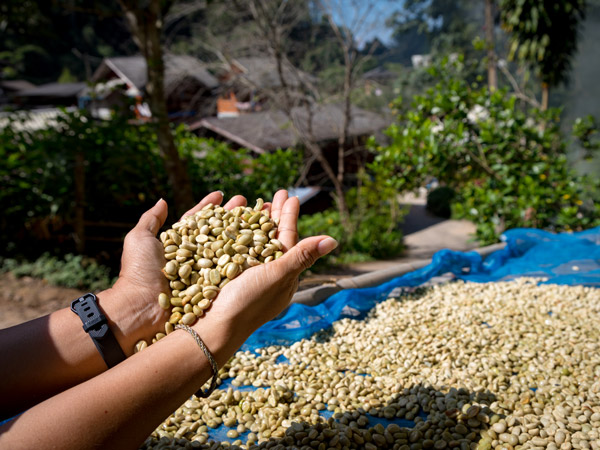
Sustainable agriculture has largely replaced the illegal drug trade. (Image: Tourism Authority of Thailand)
Since 1988, this intensive effort to curb the drug trade helped establish rehabilitation services and educational programs and push locals towards sustainable farming. Everywhere I look, the Golden Triangle’s steep hills are now covered in crops and flowers. I climb to the highest deck of Swon Khun Pu Life Museum Cafe, where guests sit on the edge while they sip fruit smoothies and enjoy traditional Lanna cuisine, feet swaying in the air.
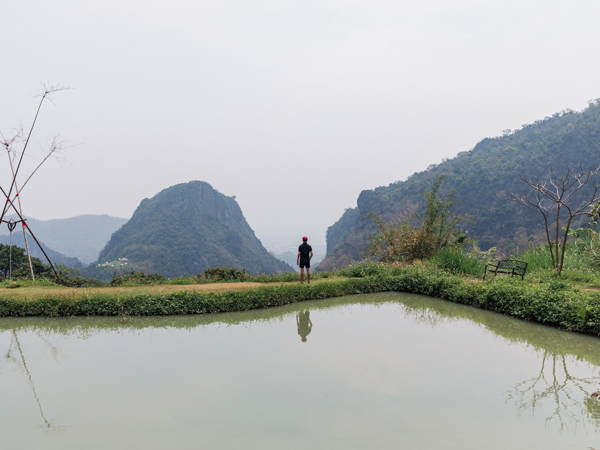
Reach the top of the Life Museum Cafe. (Image: Tourism Authority of Thailand)
The major appeal of this surprising establishment is the surreal view of these productive hills framing a picturesque pond. I slurp another round of thick khao soi noodles before imagining what kind of unfettered brilliance an artist like Claude Monet could have pulled out of this unforgettable scene. It would be a masterpiece.
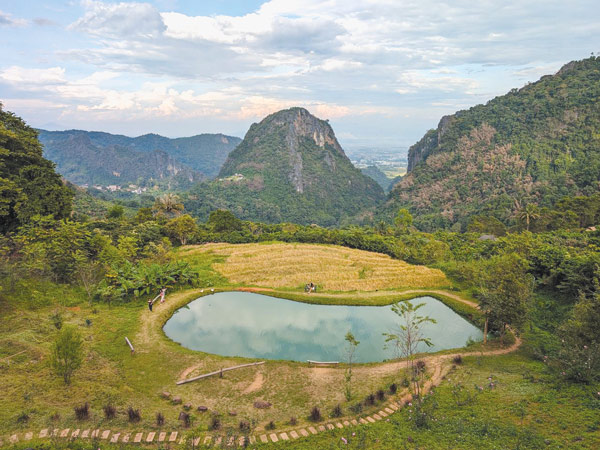
Take in picturesque views from Swon Khun Pu Life Museum Cafe. (Image: Chris Singh)
Gentle giants
Humans aren’t the only ones benefiting from the tranquillity that sustainable farming maintains throughout the region. The Golden Triangle Asian Elephant Foundation (GTAEF) works closely with Four Seasons Tented Camp to rescue and rehabilitate elephants from the dangerous conditions they endure in other parts of the country.
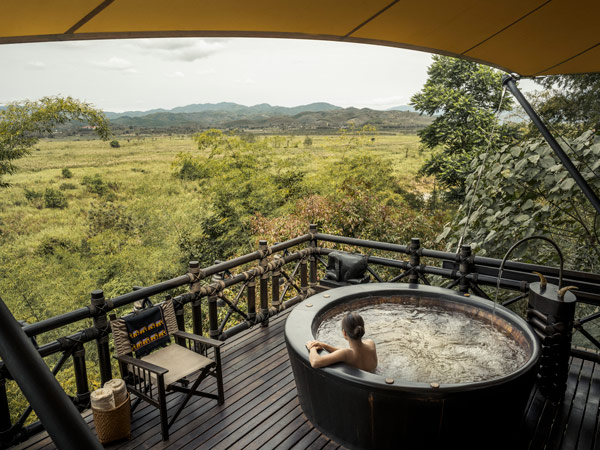
Bathe in pure bliss at the Four Seasons Tented Camp.
Ethical encounters with elephants are a murky topic in Southeast Asia, and I’m told Northern Thailand is the best place for this increasingly hands-off tourism initiative. While I’m spending a few nights at Four Seasons Tented Camp, I walk alongside the elephants that roam the property.
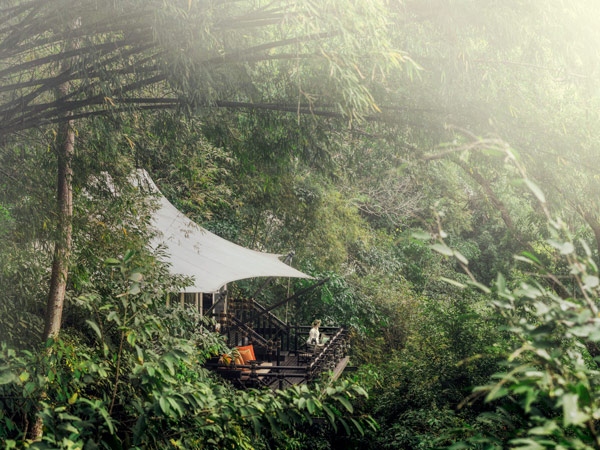
The camp is nestled in the lush mountainside and bamboo jungle.
Beyond feeding some and helping to lightly hose others down, I simply observe as they stomp around their natural habitat. Elephants play a key role in creating and maintaining forests, so their protection is as essential to Thailand’s future as coffee, fruit and vegetables.
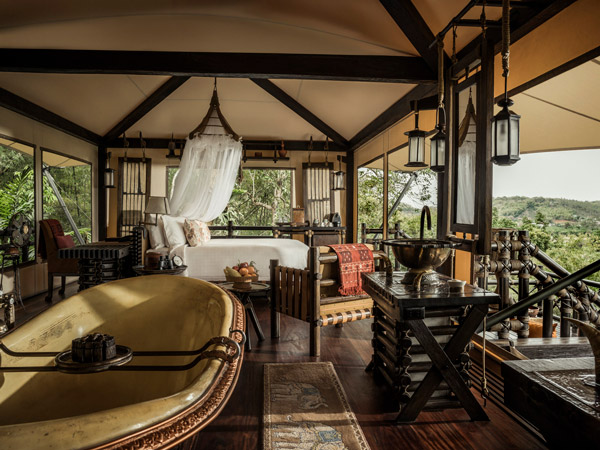
Settle into one of the luxe tents.
One community
There are seven major Hill Tribes in Thailand and some are represented at Mae Sai market alongside other sellers from Thailand and Myanmar. While on the surface, this sprawling collection of stalls and vendors may seem like a typical Southeast Asian market, it’s a chaotic symbol of the communion resulting from the switch to sustainable farming practices.
I walk around to the familiar sights of knock-off designer bags, slogan tees and jewellery, as well as a few surprises such as decorative opium pipes. The smell of wet fish and fruit is pungent. But knowing that these people who live in different countries regularly converge to sell and trade their goods reiterates the human benefit of moving towards a more sustainable future in controversial regions such as this. You can’t have prosperity without peace.
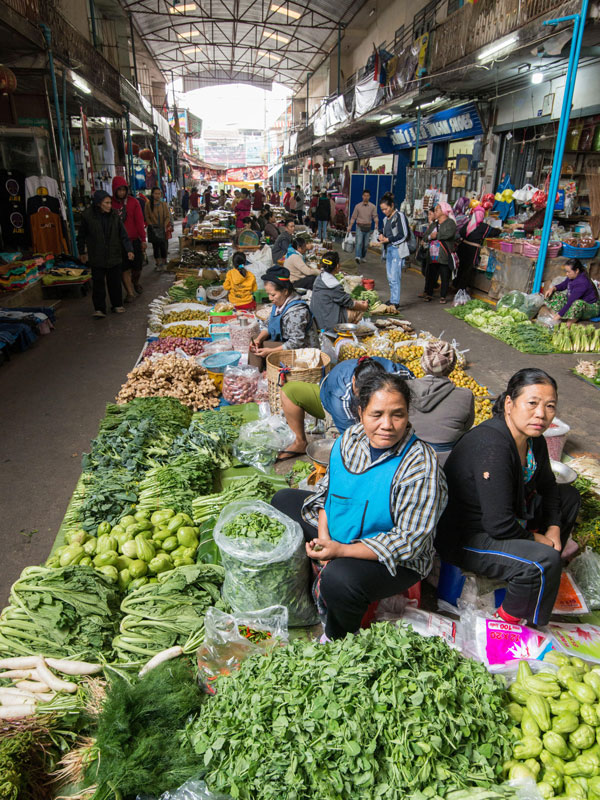
Buy fresh veggies at Mae Sai market. (Image: Amnat/Alamy)
Rumble in the jungle
Designed by Bill Bensley, Four Seasons Tented Camp Golden Triangle is a sprawl of 15 luxury safari tents along the Ruak River, which peels off from the Mekong and cuts through the borders of Thailand and Myanmar.
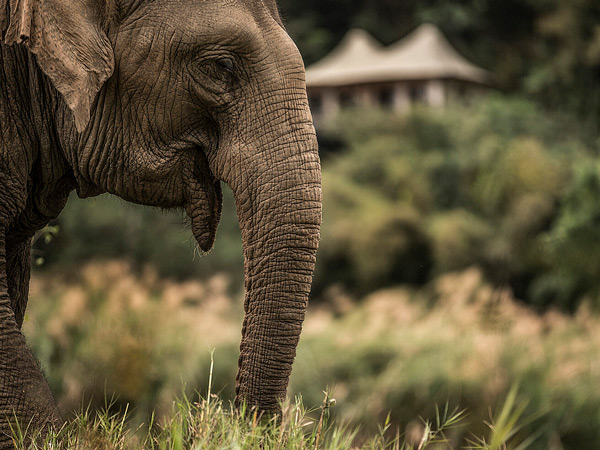
Rehabilitated elephants roam the property. (Image: Four Seasons Tented Camp)
Guests walk with elephants, soak in a jungle spa, relax with massages scored by birdsong, enjoy food and drink representing all three bordering countries, and end the day at the rustic Burma Bar while watching the sun set over Myanmar.
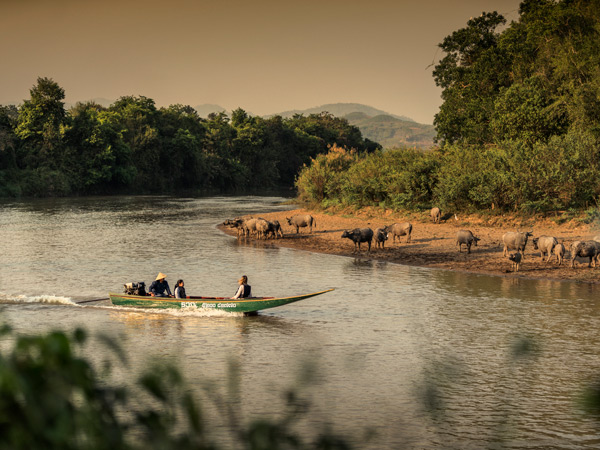
Go cruising on the Ruak River.
Meet the farmers
Located in nearby Chiang Mai, Ori9in Gourmet Farm is run by Michelin-trained chef James Noble and supplies many of Thailand’s top restaurants and luxury hotels with fresh produce. Between October and March, Noble opens a ‘waiting for May’ picnic concept where you can tour the farm, learn about regenerative agriculture and enjoy a field-to-fork feast. Noble also runs farm rental spaces that locals can use to grow specific ingredients and test products via a network of more than 15 local Michelin-star chefs.
Learning from the past
The Golden Triangle’s history echoes the importance of education as the first step to a sustainable future. The Hall of Opium Museum is a one-of-a-kind collection of this region’s complicated history and details the Doi Tung Development Project that helped lessen the burden of illicit farming.

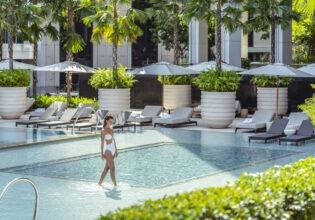
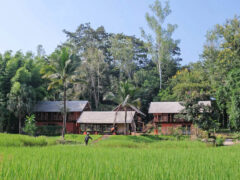
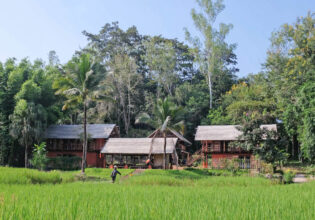
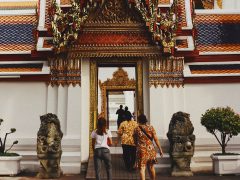
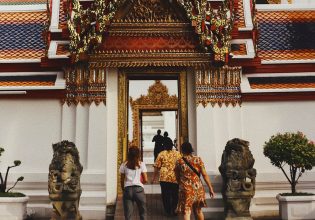
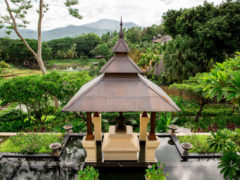
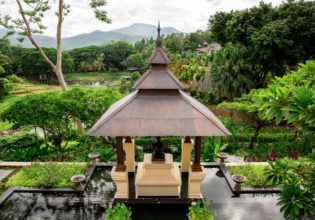
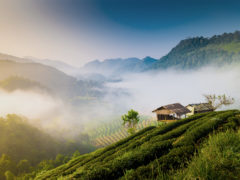
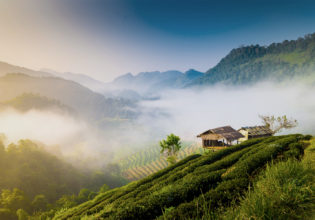
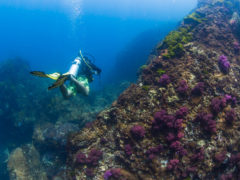
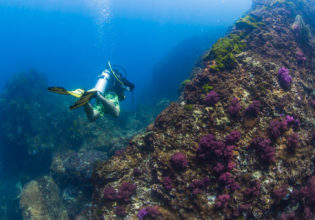

LEAVE YOUR COMMENT